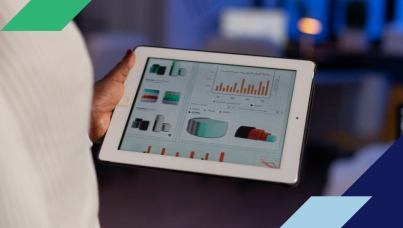Aviation industry aligned on sustainability, but faces headwinds in its efforts to decarbonize
Washington DC, June 15, 2023
A new survey run with 300+ aviation decision makers in six countries finds that amidst myriad issues, the industry is united in its focus on sustainability.
A plurality of respondents (30%) identify meeting sustainability goals as the top current challenge, surpassing supply chain (19%) and labor issues (11%). Respondents are split as to whether progress is happening at the right pace, with 51% saying strategy implementation is too slow, adding a sense of urgency to a longer-term target.
In the face of these challenges, a strong majority (88%) report that their organizations have sustainability strategies in place, with most saying that these strategies have already had a major or moderate impact on how their company operates (74%), invests (73%), and hires (62%).
Results also demonstrate a commitment to reaching these goals as most respondents with sustainability strategies in place (75%) indicate their company sustainability investments will grow or remain unchanged in the face of rising inflation and risk of recession.
While a plurality (46%) believe the industry will meet its net zero goal by 2050, 32% say it will not, and 22% are unsure. On average, respondents believe the target will be met by 2055 and identify rising costs, budgetary pressure, supply issues, and energy resources as the biggest hurdles.
Government (29%) is said to be applying the most pressure to develop more sustainable strategies, followed by investors (17%). Further, while there’s a clear preference that government’s role focuses on incentives and policy support (61%), 19% are even open to mandates in order to reach these goals.
“Incentives are important, even in the places where you have mandates or penalties. Those penalties need to be (hopefully) kept in the sector so they can go toward financing some of the fixes. So, I would say if you’re going to use the mandates, you need to try to pair this with the incentives, or at least have the penalties be spent in the area that you're trying to achieve.” -US Aviation Sustainability Executive
Respondents rank increased sustainable aviation fuel (SAF) investment as the number one most important role for government to play in reaching the 2050 goal. In fact, respondents suggest advancements in fuels like SAF (27%), as well as hydrogen-blend fuel (23%) and engine technology, including hybrid-electric (21%) and more efficient engine designs (13%), are likely to have the biggest impact on reaching net zero.
“SAF is probably the leading alternative at the moment that meets the requirements we need in the short term, but the scale and cost of production is a huge barrier that we've got to overcome.” – Europe Aviation Sustainability Executive
About the Study
These are the findings of a GE Aerospace/Ipsos poll conducted between May 2-11, 2023. For this survey, a sample of 325 aviation decision makers ages 26+ from the U.S., U.K., China, India, the UAE, and France were interviewed in English, Chinese, Arabic, or French. Respondents in the U.S., U.K., China, and France were interviewed online, while those in the UAE and India interviewed by telephone. To qualify, respondents needed to work full-time at or own a company with 100+ employees in the aviation/aerospace, transport and logistics, or travel sector, have a role as a middle manager or more senior, and have all, part, or some of the decision-making responsibility or input in the aviation/aerospace, transport, or logistics areas. For those in the U.S., the company needed to have an annual revenue of $5 million or more. For those in the U.K., the company needed to have an annual revenue of £5 million or more. For those in China, the company needed to have an annual revenue of 4.5 million yuan or more. For those in India, the company needed to have an annual revenue of ₹30 crore or more. For those in the UAE, the company needed to have an annual revenue of 37.5 million dirham or more. For those in France, the company needed to have an annual revenue of €5 million or more. The sample includes 57 respondents from the U.S., 56 respondents from the U.K., 50 respondents from China, 55 respondents from India, 55 respondents from the UAE, and 52 respondents from France.
The online sample was randomly drawn from opt-in partner online panel sources. The phone sample was drawn from partner proprietary databases as well as online third-party sources. Overall, the study’s sample does not rely on a population frame in the traditional sense. No post-hoc weights were applied to the data and the findings reflect the opinion of these respondents.
Statistical margins of error are not applicable to online non-probability polls. All sample surveys and polls may be subject to other sources of error, including, but not limited to coverage error and measurement error. Where figures do not sum to 100, this is due to the effects of rounding. The precision of Ipsos online polls is measured using a credibility interval. In this case, the poll has a credibility interval of plus or minus 6.7 percentage points for all respondents. Ipsos calculates a design effect (DEFF) for each study based on the variation of the weights, following the formula of Kish (1965). This study had a credibility interval adjusted for design effect of the following (n=325, DEFF=1.5, adjusted Confidence Interval=+/-8.2 percentage points).
For more information on this news release, please contact:
Ellen Bartlett
Senior Vice President
Public Affairs
About Ipsos
Ipsos is one of the largest market research and polling companies globally, operating in 90 markets and employing over 18,000 people.
Our passionately curious research professionals, analysts and scientists have built unique multi-specialist capabilities that provide true understanding and powerful insights into the actions, opinions and motivations of citizens, consumers, patients, customers or employees. Our 75 solutions are based on primary data from our surveys, social media monitoring, and qualitative or observational techniques.
Our tagline "Game Changers" sums up our ambition to help our 5,000 customers move confidently through a rapidly changing world.
Founded in France in 1975, Ipsos has been listed on the Euronext Paris since July 1st, 1999. The company is part of the SBF 120 and the Mid-60 index and is eligible for the Deferred Settlement Service (SRD).
ISIN code FR0000073298, Reuters ISOS.PA, Bloomberg IPS:FP www.ipsos.com



